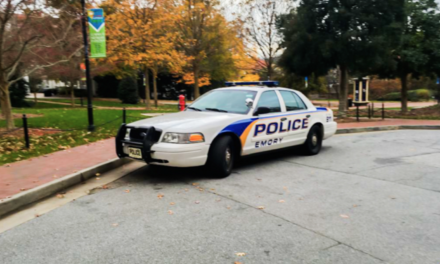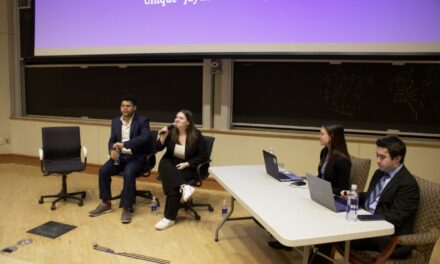In light of the recent comparisons between Hitler and Trump, students are researching and documenting the first 100 days of Hitler’s position as chancellor of Germany from Jan. 30, 1933 until May 9, 1933, according to German Department Chair Hiram Maxim.
The project, led by Maxim and entitled “The First 100 Days,” began in response to the rhetoric surrounding Trump’s recent election, Maxim said. Some people have used the terms such as “fascism,” “Nazi” and “Hitler” to describe the president, according to Maxim, who hopes to clarify the meaning of those terms by providing historical evidence.
The research project will allow its audience to decide for themselves if there is a correlation between the first 100 days of Hitler’s rule and the first 100 days of Trump’s presidency, Maxim said.
“The research on each day is not to overtly define fascism, and [the students] are not making any commentaries,” Maxim said. “[The students] just present the events from each day, so it is up to the viewers to determine what this means.”
More than 20 students are conducting research on the time period by translating primary sources, such as German newspapers and radio addresses from 1933, according to project participant Allison Rose (19C). The group’s findings, including information on Hitler’s first speech as the new German chancellor and the decline of the Prussian Parliament, are posted in the Dobbs University Center (DUC), on the project website and on Twitter.
Each daily post will correspond with the matching day in 1933, and the posts will finish on May 9, 2017 — the 100th day of Hitler’s term as chancellor of Germany.
When Maxim reached out to all students in the German Department, 20 students expressed interest in the project, and 16 of those students chose to receive credit for the project as a directed study course, meeting for about 75 minutes each week and conducting additional research outside of class.
The German translation is advanced for the students because a majority of them are in entry-level German courses and the sources are in an older, gothic style of writing, Maxim said. The team is also studying secondary sources for events that were heavily publicized, such as the Reichstag fire, during which Germany’s parliament building was intentionally burnt down.
“For me, personally, this project is a way to call attention to historical precedents and to be aware and cautious of our national political climate,” project participant Cana McGhee (19C) said.
She added that it is important for students to be involved with this type of work.
“This election season has brought a lot of activism on all sides,” McGhee said. “We’re young and encouraged to speak our minds, so we can do so in a way that is not as intrusive.”
Lauren is an Environmental Science and Media Studies double major from Braselton, Georgia. She is a staff writer for the Emory Wheel, a member of Pi Beta Phi, president of Emory Running Club and a member of the Emory Environment Senate Committee. In her free time, she likes to play with her four dogs, including one named Kat!





